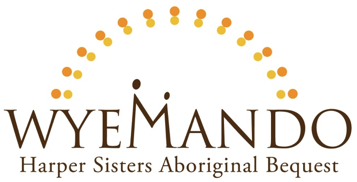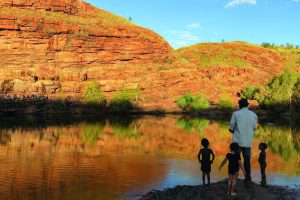Jiyagbinggirri Gooniyandi 2018
![]()
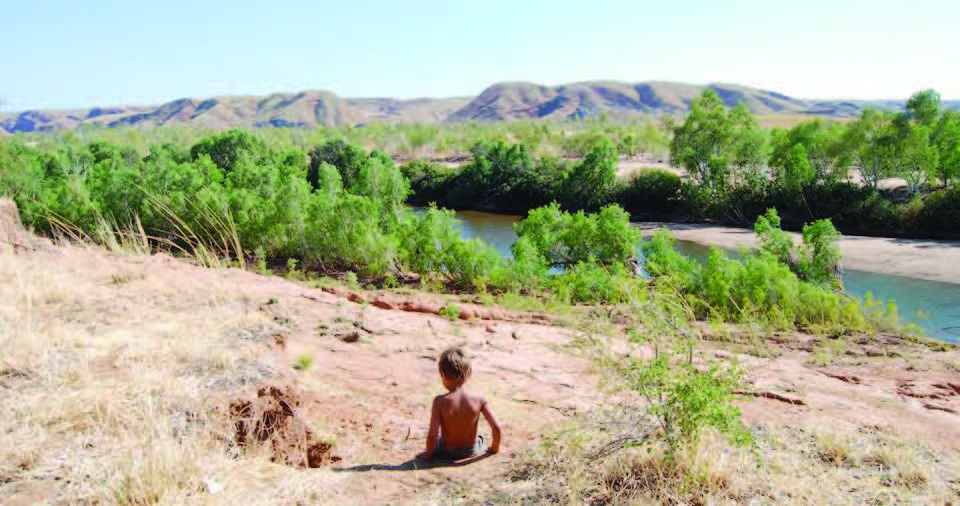
Continued on-country language and cultural learning for the children of Yiyili
Yiyili Community Aboriginal School
Yiyili Community, East Kimberley
March to December 2018
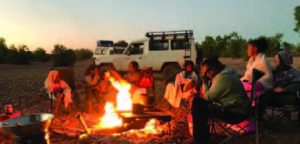 Building on the strength of the 2017 program, Jiyagbinggbirri Gooniyandi 2018 again enabled repeated access to on-country learning for the children of Yiyili Aboriginal Community School.
Building on the strength of the 2017 program, Jiyagbinggbirri Gooniyandi 2018 again enabled repeated access to on-country learning for the children of Yiyili Aboriginal Community School.
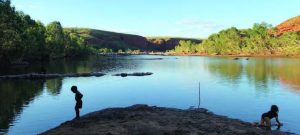 Each class spent two days per term on bush trips. The trips continued to be accompanied by members of the Yiyili community, ensuring the the children had appropriate Gooniyandi language and cultural expertise to guide their learning.
Each class spent two days per term on bush trips. The trips continued to be accompanied by members of the Yiyili community, ensuring the the children had appropriate Gooniyandi language and cultural expertise to guide their learning.
Following the success of last year’s program, the school was also able to fund a teacher/linguist who worked with the Gooniyandi language teacher. Together they planned a series of classroom-based lessons around the trips to maximize the trips’ learning potential.
Why “on-country” learning?
On-country learning inspires young people through learning by doing, having fun, providing a ‘whole body experience’ of Gooniyandi culture. It recognises that young people enjoy being on country and engaging in culture, being inspired by elders, and feeling valued and important through the simple act of being entrusted with knowledge of Gooniyandi language and culture.
The community school offers an ideal forum for the trips, providing coordination, vehicles, supervision and in-school learning support. Wyemando funding covered the cost of fuel and food for the trips, which can be a barrier for communities wanting to access bush trips and pass down cultural knowledge on-country.
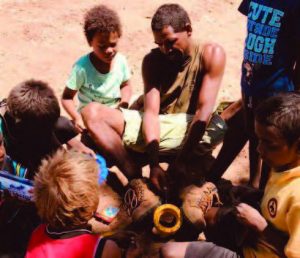 |
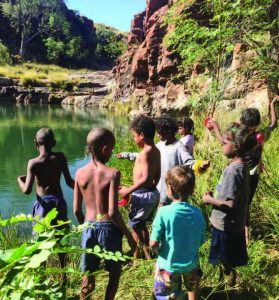 |
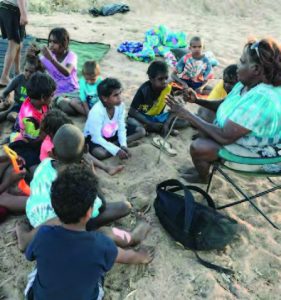 |
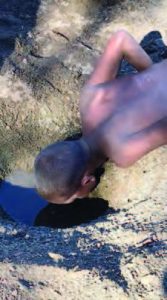 |
Activity Goals
This activity is part of a greater objective within the school and the community to move from use of single Gooniyandi words to using “meaningful chunks of text” in everyday life. Most children in Yiyili speak Kriol, a Kimberley contact language, at home. Older people in Yiyili speak Gooniyandi but it has slipped out of usage among middle and younger generations and there are fewer fluent speakers with each passing year.
Within this broader objective of moving beyond single Gooniyandi words, the trips aimed for students, staff and other family to:
- build knowledge and a sense of belonging to their country through experience, story and study of rock art with elders
- hunt, fish, gather and prepare bush foods and medicine
- record cultural knowledge in photos, film and audio
- produce short film clips with audio and song
- produce books and language teaching materials
Activity Outcomes and other developing language and cultural activities
Connection to country:The students knowledge of country is growing incrementally. Children and their families are experiencing a greater sense of belonging to their country.
Growing collection of cultural resources: photos and videos taken on the trips have been gathered onto the school server for teaching use.
Gooniyandi adults acknowledged as the experts: Sharing their knowledge with their children and the ‘kartiya’ (whitefella) teachers empowered Yiyili community members. Kartiya teachers stood back and and kids saw their Gooniyandi family take charge.
Increased community agency: teachers are learning to step back and community members are taking ownership of the school. For example, community members organised a range of 2018 NAIDOC week events and activities at the school.
Resurgence in Gooniyandi song-writing: community members are using the school’s newly set-up music studio to record their songs.
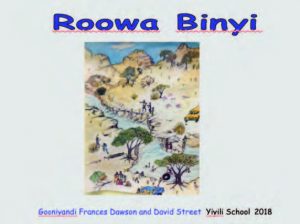 Production of ‘in-house’ books: books have been produced for daily use in the program. Each unit is based around a book. Sentence patterns are elicited from the language of the book and then a series of songs and games are developed.
Production of ‘in-house’ books: books have been produced for daily use in the program. Each unit is based around a book. Sentence patterns are elicited from the language of the book and then a series of songs and games are developed.
Production of a professionally published book: Thirroo and Garnbirra classes illustrated the book version of Gooniyandi song Yiyili Mawilyi with assistance from children’s authors Alison Lester and Jane Godwin.
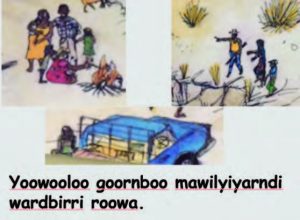 Increased use of Gooniyandi at home: the Gooniyandi language teacher has reinstated Gooniyandi as a home language in her own home, to strengthen her and her family’s grasp of the language.
Increased use of Gooniyandi at home: the Gooniyandi language teacher has reinstated Gooniyandi as a home language in her own home, to strengthen her and her family’s grasp of the language.
Expanding the language teaching team: the community’s first trainee language teacher is on track to complete the Western Australian Department of Education’s Aboriginal Languages Teacher Training at the end of 2019, while another trainee will be selected to commence the two-year course in July 2019. As well as injecting the school’s language program with greater confidence, energy and pedagogy, this will build resilience into the language teaching team.
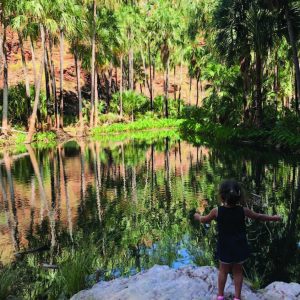 Potential for adult learning program: the community is now exploring funding opportunities to launch an adult Gooniyandi language immersion program, replicating successful Yaruwu immersion program in Broome.
Potential for adult learning program: the community is now exploring funding opportunities to launch an adult Gooniyandi language immersion program, replicating successful Yaruwu immersion program in Broome.
Youth engagement strategy: the community is also exploring expansion to weekend family trips as part of culturally-based justice diversion program.
Improved infrastructure: inspired by the trips, Louisa Downs station workers graded old roads to more remote water holes, enabling children to visit them for the first time.
Activity Challenges
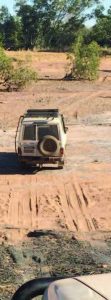
Aging 4 wheel drive vehicles: the school’s two ‘troupies’ are suffering the impact of a life of rough roads. Maintenance is a significant project cost and replacement a challenge, not only in terms of capital outlay but also that newer models now have bucket seats in place of bench seats, reducing passenger numbers per vehicle.
Obtaining high quality photos, videos and audio recordings: Upskilling community in photography, videography and audio recording will maximise the quality of photographic, video and audio material produced on trips, making better resources for use in school and community.
Monitoring the impact of cane toad encroachment: cane toads have devastated goanna numbers since they arrived to Gooniyandi country two years ago. The community is watching to see if the goannas learn to avoid eating cane toads and recover their numbers. The declining numbers have a cultural impact: without goanna hunting, Gooniyandi boys miss out on an important opportunity for cultural learning from the older men.
![]()
